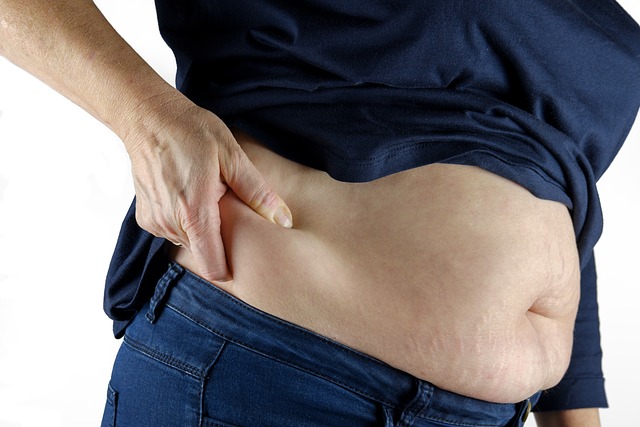Obesity and sleep apnea are two prevalent health conditions that can have a significant impact on an individual’s overall health and wellbeing. While both conditions are known to occur independently, there is increasing evidence to suggest that there is a strong link between obesity and sleep apnea. Research has shown that obesity is one of the leading risk factors for sleep apnea, a condition characterised by repeated breathing interruptions during sleep. Understanding the link between obesity and sleep apnea is essential for clinicians and researchers to better understand the underlying mechanisms of these conditions, as well as to develop effective prevention and treatment strategies.
This blog post will explore the link between obesity and sleep apnea, including the mechanisms of the link, health consequences, and treatment options. By shedding light on this important topic, we hope to raise awareness about the risks associated with obesity-related sleep apnea and highlight the importance of early intervention and management.
Obesity and Sleep Apnea

Obesity and sleep apnea are two health conditions that are becoming increasingly prevalent worldwide. More than one in three adults in the United States alone suffer from obesity, which is defined as having a body mass index (BMI) of 30 or higher. Meanwhile, sleep apnea, a condition characterised by breathing interruptions during sleep, is estimated to affect around 25 million adults in the US.
As already mentioned, while both conditions are known to occur independently, there is growing evidence to suggest that there is a strong link between obesity and sleep apnea. In fact, obesity is one of the leading risk factors for sleep apnea, with studies showing that obese individuals are up to four times more likely to develop the condition than those of a healthy weight. So, what is the link between obesity and sleep apnea, and why is it important to understand?
Obesity and Sleep Apnea: The Link
There are several ways in which obesity contributes to the development of sleep apnea. One of the main mechanisms is that excess weight can lead to the accumulation of fat around the neck and throat, which can narrow the airway and make it more difficult to breathe during sleep. Additionally, obesity can affect respiratory function, as excess fat can place extra pressure on the lungs and chest wall, making it harder to breathe deeply.
Obesity can also impact sleep architecture, with studies showing that individuals who are overweight or obese are more likely to experience disruptions to their sleep, including snoring and waking up frequently throughout the night. These disruptions can affect breathing patterns and increase the likelihood of breathing interruptions during sleep.
Health Consequences of Obesity-Related Sleep Apnea
The health risks associated with sleep apnea are well-documented, and they can be particularly severe for individuals who are also obese. Research has shown that obesity-related sleep apnea can increase the risk of several health problems, including:
- Metabolic disorders, such as insulin resistance and type 2 diabetes
- Cardiovascular disease, including hypertension, stroke, and heart attack
- Cognitive impairment, such as memory problems and difficulty concentrating
- Mood disorders, including depression and anxiety
In summary, the link between obesity and sleep apnea is a complex and multifaceted issue, but one that is increasingly important to understand as both conditions continue to rise in prevalence. By recognizing the link between these two health problems, healthcare professionals can provide targeted interventions to help manage and prevent the health risks associated with obesity-related sleep apnea. Ultimately, through a combination of lifestyle changes and appropriate medical interventions, individuals with obesity-related sleep apnea can improve their overall health and quality of life.
Mechanisms of the Link Between Obesity and Sleep Apnea


The Role of Excess Weight
One of the main ways in which obesity contributes to sleep apnea is through the accumulation of excess fat around the neck and throat. This excess tissue can narrow the airway and make it more difficult to breathe during sleep. Additionally, obesity can lead to changes in the structure of the airway, which can further restrict airflow.
Obesity can also impact respiratory function, making it harder to breathe deeply and fully. This is because excess fat can place pressure on the chest wall and lungs, which can interfere with normal respiratory mechanics.
Disrupted Sleep Architecture
In addition to changes in the airway and respiratory function, obesity can also affect sleep architecture, which can increase the likelihood of sleep apnea. Studies have shown that individuals who are overweight or obese are more likely to experience disruptions to their sleep, including snoring and waking up frequently throughout the night. These disruptions can impact breathing patterns and increase the likelihood of breathing interruptions during sleep.
The Role of Inflammation
Recent research has also suggested that inflammation may play a role in the link between obesity and sleep apnea. Obesity is known to cause chronic low-grade inflammation throughout the body, which can contribute to a range of health problems. This inflammation can also impact the upper airway, causing it to become more vulnerable to collapse during sleep.
To paraphrase, the link between obesity and sleep apnea is a complex and multifaceted issue, with multiple mechanisms contributing to its development. By understanding these mechanisms, healthcare professionals can provide targeted interventions to help manage and prevent the health risks associated with obesity-related sleep apnea. Ultimately, through a combination of lifestyle changes and appropriate medical interventions, individuals with obesity-related sleep apnea can improve their overall health and quality of life.
Health Consequences of Obesity-Related Sleep Apnea


Cardiovascular Disease
Perhaps the most serious health consequence of obesity-related sleep apnea is an increased risk of cardiovascular disease. When the airway becomes blocked during sleep, the body is deprived of oxygen, which can cause a spike in blood pressure and lead to inflammation in the cardiovascular system. Over time, this can increase the risk of conditions such as hypertension, stroke, and heart attack.
Type 2 Diabetes
Obesity-related sleep apnea has also been linked to an increased risk of type 2 diabetes. This may be due in part to the fact that sleep apnea can cause disruptions to the body’s natural glucose metabolism, leading to higher blood sugar levels. Additionally, individuals with sleep apnea may be more likely to have a higher body mass index (BMI) and other risk factors for type 2 diabetes.
Mental Health Issues
Sleep apnea can also have a negative impact on mental health. Studies have shown that individuals with sleep apnea are more likely to experience symptoms of depression and anxiety, as well as cognitive impairments such as memory loss and difficulty concentrating. These mental health issues can significantly impact an individual’s quality of life and overall well-being.
Daytime Fatigue
Another potential consequence of sleep apnea is daytime fatigue. Because sleep apnea disrupts normal sleep patterns, individuals with the condition may not get enough restful sleep, even if they spend a full eight hours in bed. This can lead to excessive daytime sleepiness, which can impact performance at work or school and increase the risk of accidents while driving or operating machinery.
To summarise, obesity-related sleep apnea is a serious health condition that can have significant health consequences. From cardiovascular disease to mental health issues, sleep apnea can impact every aspect of an individual’s well-being. If you think you may be suffering from sleep apnea, it’s important to seek medical attention as soon as possible to receive a proper diagnosis and appropriate treatment. With the right interventions, individuals with sleep apnea can improve their health and quality of life.
Treatment Options for Obesity-Related Sleep Apnea


While sleep apnea can have serious health consequences, there are a range of treatment options available for those who suffer from it. In this blog post, we’ll explore some of the most effective treatment options for obesity-related sleep apnea.
Continuous Positive Airway Pressure (CPAP) Therapy
One of the most common and effective treatments for obesity-related sleep apnea is continuous positive airway pressure (CPAP) therapy. This treatment involves wearing a mask over the nose and/or mouth while sleeping, which delivers pressurized air to keep the airway open. CPAP therapy can significantly reduce the severity of sleep apnea symptoms, including snoring, daytime fatigue, and breathing interruptions.
Oral Appliances
In some cases, oral appliances may be used to treat sleep apnea. These devices are custom-fitted by a dentist or orthodontist and work by repositioning the tongue and jaw to keep the airway open during sleep. Oral appliances can be a good alternative to CPAP therapy for those who find the mask uncomfortable or who have mild to moderate sleep apnea.
Weight Loss
For many individuals with obesity-related sleep apnea, weight loss can be an effective treatment option. Losing even a small amount of weight can help to reduce the severity of sleep apnea symptoms and improve overall health. In some cases, weight loss may even cure sleep apnea altogether. Lifestyle changes such as exercise and a healthy diet can be effective in achieving weight loss goals.
Surgery
In some cases, surgical interventions may be necessary to treat obesity-related sleep apnea. The most common surgical procedure for sleep apnea is uvulopalatopharyngoplasty (UPPP), which removes excess tissue from the back of the throat to widen the airway. Other surgical options may include maxillomandibular advancement (MMA), which repositions the jaw, or tracheostomy, which creates a new airway.
Summarising, obesity-related sleep apnea is a serious health condition that can have significant health consequences. Fortunately, there are a range of treatment options available for those who suffer from it. From CPAP therapy to weight loss, there are many ways to improve sleep apnea symptoms and improve overall health. If you think you may be suffering from sleep apnea, it’s important to seek medical attention as soon as possible to receive a proper diagnosis and appropriate treatment. With the right interventions, individuals with sleep apnea can improve their health and quality of life.
Wrapping It All Up
In conclusion, the link between obesity and sleep apnea is well-established, with excess weight being one of the primary risk factors for this condition. The mechanisms underlying this link are complex, but they involve a combination of factors such as increased fat deposition in the upper airway, altered respiratory drive, and changes in the body’s inflammatory response. Obesity-related sleep apnea can have significant health consequences, including cardiovascular disease, diabetes, and cognitive impairment.
However, with the right interventions, individuals with sleep apnea can improve their health and quality of life. Treatment options such as CPAP therapy, oral appliances, weight loss, and surgery can be effective in reducing the severity of sleep apnea symptoms and improving overall health. It’s important for individuals with sleep apnea to seek medical attention as soon as possible to receive a proper diagnosis and appropriate treatment. With continued research and awareness, we can work to better understand the link between obesity and sleep apnea and improve outcomes for those who suffer from this condition.
Read More
- ACL Injuries and Everything You Need to Know
- 5 Types of food That Will Boost Immunity
- How to Improve Your Life with a Great Morning Routine
- The Benefits of Concentrating on Personal Development
- 6 Ways to Give Up Smoking Once and For All
Disclaimer: The information provided on Healthy Lifestyles for All is intended for general educational purposes only and should not be considered as medical advice. Please consult with your GP or other health professional before making any significant changes to your diet, exercise routine, or any other aspect of your lifestyle. We are not responsible for any adverse effects or consequences resulting from the use of the information provided on our blog.
Comments: I hope you enjoyed reading this post as much as I enjoyed writing it. If you liked it, please leave a comment. If you didn’t like it, disagree with something I have written (I’m okay with that), or think I got something wrong (that’s okay too), please leave a comment as well. We only truly learn from our mistakes, so I am happy to have mine pointed out.
Affiliate Links: Please also note that I may make a small amount of money if you buy one of the products I recommend in any of my blog posts. Rest assured that I have done my own due diligence, and only recommend products that have been tried and tested, and have extremely good feedback. Additionally, many of the products I recommend have 30 or 60-day money-back guarantees, so you can buy in the confidence that if a particular product is not right for you, you can get a refund.




